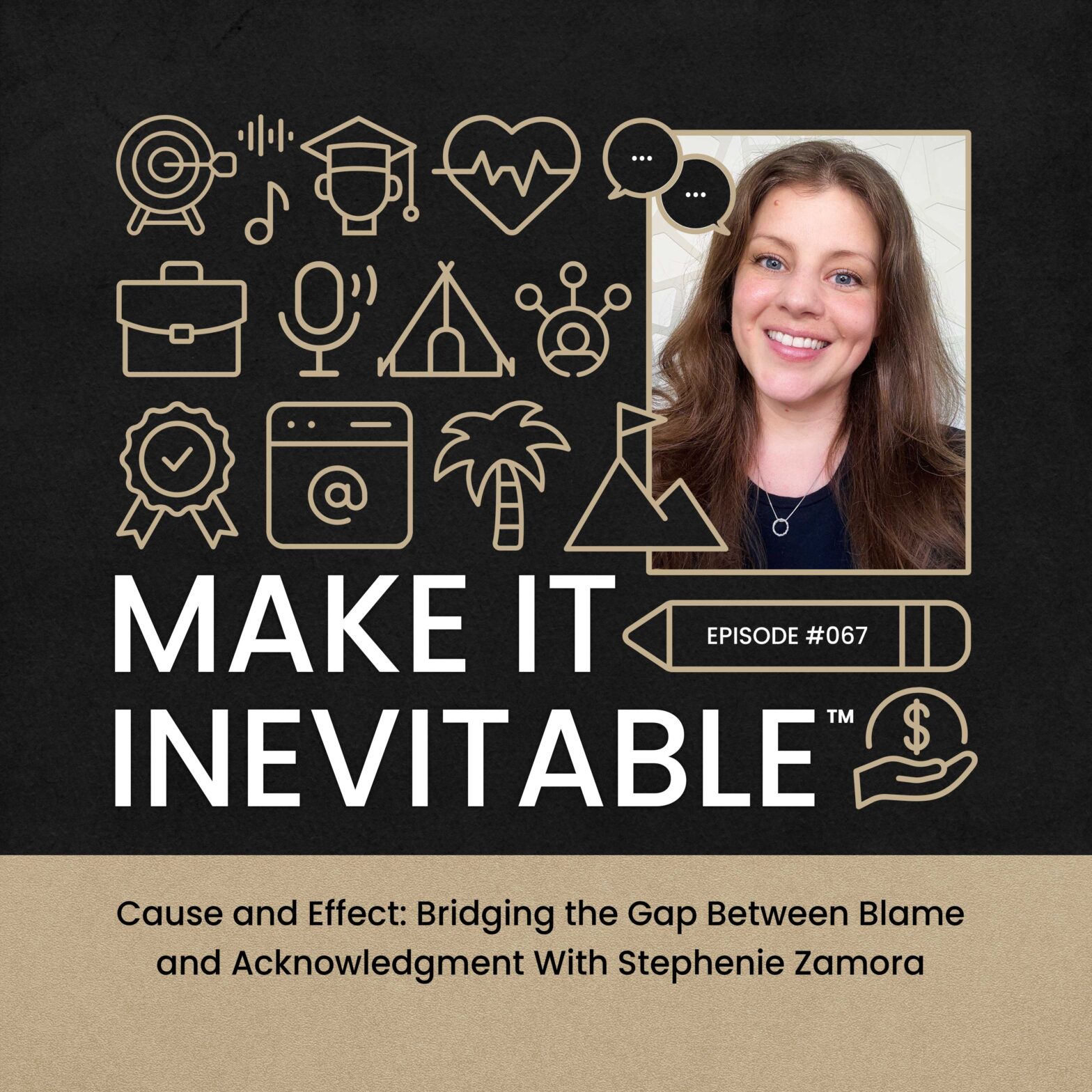Podcast (makeitinevitable): Play in new window | Download
“When we take ownership, we remember that we have a lot of choices and control, though they’re not always easy choices.”
In this episode, I’m digging into the concept of cause and effect and how we bridge the gap between blame and acknowledgment to create different outcomes for ourselves. Blame is a tempting reaction to experiences that don’t feel good or results that are far from what we desired or intended, but this way of being keeps us at the mercy of everything and everyone else, never able to take full ownership of our lives to make the impossible inevitable. When we truly understand cause and effect, we’re able to gain invaluable insights and make entirely different choices, but we can’t do that when we’re getting lost in our interpretations, triggering our subconscious winning strategy and spiraling ourselves in an unproductive direction. If you struggle with blame (either towards others or yourself), this episode is for you.
Grab our classic worksheet, The Unexpected Trick to Transforming Your Life With ONE Single Question.
Listen to our episode on identifying your subconscious winning strategy.
Read our book, What Really Happened?, to break free from interpretations and start making the seemingly impossible happen.
Grab our actionable free workbooks on making the impossible inevitable and navigating the Terror Barrier here.
What to listen for:
- What is blame, and how is it detrimental?
- How our childhood traumas condition us to blame
- Expansive vs. contractive consequences
- The stories we tell when we get “in trouble”
- The nine words that will forever transform your life
“For everything that’s not abuse, we’re looking at the conditions that allowed this outcome to occur, these effects to be caused, these consequences to happen as a result of other things happening. We’re looking at the circumstances of the container, the situation that allowed this to come to be, and we’re trying to find our role inside of that. Not to make ourselves feel like a piece of crap, not to blame and beat ourselves up, but to take ownership.”
- How we take ownership of things outside our control
- The power of living from a solutions-oriented mindset
- Why we must stop blaming ourselves and others
- Reflecting on the cause vs. dropping into blame
“It’s not blame when we acknowledge the cause and effect of things. And if we’re so afraid to acknowledge cause and effect because we think it means blaming ourselves or other people, it’s really hard for us to start to do the intellectual work of healing and making sense of our experiences and how we feel about them, and then pairing that with the processing work.”
- Examples of cause and effect and its consequences in my business
- Cause and effect doesn’t mean we stop feeling our feelings
- Blame takes away our ability to heal
- Questions to ask yourself to integrate this work
